
The Department of Anthropology is a medium sized department with an excellent faculty, diverse research interests, high national visibility, and a reputation for first-rate graduate and undergraduate programs. In addition to the quality of training offered by our faculty, we take pride in fostering an atmosphere of congeniality, which we believe greatly enhances students' experiences in our Department.
In 2001, the National Association of Graduate-Professional Students survey of U.S. graduate programs rated UC Santa Barbara among its top five anthropology programs. Graduate study is offered in three areas of specialization: archaeology, integrative anthropological sciences, and sociocultural anthropology.
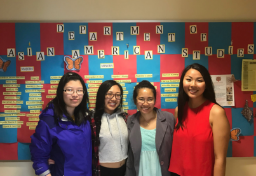
The Department of Asian American Studies was the very first academic department dedicated to the study of Asian Americans at a major research university, and the first department in the U.S. to offer a Bachelor of Arts degree in Asian American Studies.
The Department offers majors the opportunity to study and understand the experiences of Asian Americans, particularly their histories, communities, and cultures. Students learn to evaluate the existing literature, to analyze a variety of data, to conduct original research, and to participate in internships and social justice issues. A minor degree, Honors program, and community studies courses are also available to students. The Department provides a well-rounded, interdisciplinary curriculum which engages approaches from traditional disciplines, including history, sociology, anthropology, and literature, as well as from interdisciplinary scholarship in women's studies, law and society, public policy, global studies, social movements, cultural studies, and film and media studies.
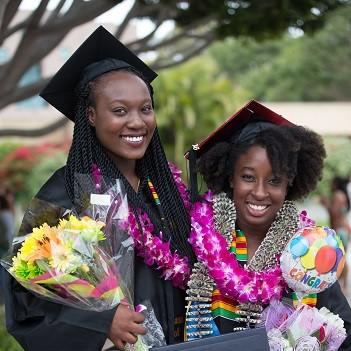
The Department of Black Studies is an interdisciplinary undergraduate program that seeks to increase the awareness and understanding of the Black experience through an examination of its historical and contemporary manifestations in various societies. Black Studies is a distinctly innovative discipline that focuses on people of African descent whether they live in Africa, in the Caribbean, or in North or South America. The Department utilizes multiple theoretical and methodological approaches to introduce students to history, literature, cinema, religion, the arts, and the social sciences while examining the dynamics of race, class, gender, sexuality, culture, politics, and economics. The undergraduate major in Black Studies offers a broad range of courses leading to a Bachelor of Arts degree or a minor in Black Studies.
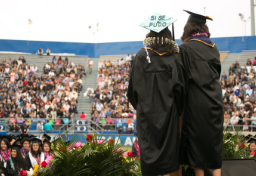
Founded more than 30 years ago, the Department of Chicana and Chicano Studies was one of the first in the nation dedicated to Mexican-American history and culture and is the only department of its kind in the UC system.
The graduate program was established in 2003 and is the first in the United States to establish a Ph.D. in Chicano Studies. The program also includes a Master of Arts degree. Undergraduates are offered an interdisciplinary program that fosters a historical, political, social, and cultural understanding of the heterogeneous Chicano and Chicana experience. It builds upon the critical inquiry of traditional disciplines, as well as upon a host of innovative approaches, most notably in gender, ethnic, sexuality, border, and global studies. Upon graduation undergraduates will receive a Bachelor of Arts degree.

The UCSB Department of Communication is internationally known for its research and education in communication processes and effects. Our mission is to provide theoretically motivated, innovative, and rigorous research, teaching, and service. We help students, researchers, and professionals understand how communication is developed, interpreted, and exchanged to inform, influence, and connect across a wide range of social contexts and cultures.
Teaching and research are vital activities for the Department of Communication at University of California, Santa Barbara. Our department offers over 65 different courses to more than 1200 undergraduate majors and over 25 different classes to our 35 graduate students in three core areas—interpersonal and intergroup communication, organizational communication, and media studies.

The Department of Economics is one of the Division’s largest departments. Economics houses many eminent senior scholars, including 2004 Nobel Laureate Finn Kydland and Emeriti Professors Stephen DeCanio and Charles Kolstad, who contributed to the Intergovernmental Panel on Climate Change, which shares the 2007 Nobel Peace Prize. Department faculty specialize in many subfields including applied, behavioral, environmental, econometrics, financial, industrial organization, international, labor, public, and macroeconomics.

The Department of Exercise & Sport Studies offers a program of basic instruction consisting of 1/2 unit courses as well as courses in athletic coaching, fitness instruction, exercise and health science, and sport management.

Feminist Studies is an "interdisciplinary discipline" that produces cutting-edge research and fosters innovative teaching. The subject matter of feminist studies is more than women: research and teaching focus on the ways that relations of gender, intersecting with race, class, ethnicity, sexuality, nation, ability, and other differences, affect every aspect of society.
The Department of Feminist Studies, with ten core and 50 affiliated faculty members, offers a multifaceted curriculum that invites students to deepen their understanding of diverse women's lives, cultures, and histories in the United States and around the globe.
We offer an undergraduate major and minor, and house the minor in Lesbian, Gay, Bisexual, Transgender, and Queer studies. We have a M.A. and PhD program, and continue to run a doctoral emphasis for graduate students in affiliated departments.
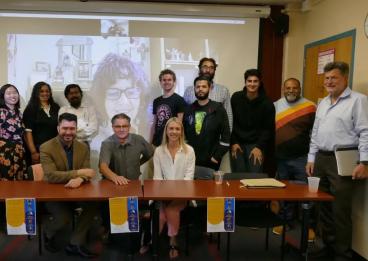
The Global & International Studies Program, established in 1999, is one of the first interdisciplinary undergraduate majors in international studies in the country to focus on globalization. The major is popular among undergraduates and attracts students from all walks of life.
The Master of Arts program offers a two-year degree, which is intended to help students develop an understanding of the economic, political, social, and cultural forces that are shaping global organizations. Internationally-recognized faculty teach and mentor graduate students in the growing program. An interdisciplinary Ph.D. emphasis in Global Studies is also available.
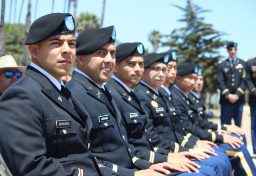
The Department of Military Science enjoys a reputation as one of the finest officer-producing programs in the United States. Graduates are consistently among the best in every category of performance.
Since its inception in 1947, over 1,500 cadets have received their officers’ commissions. The curriculum is designed to train and develop future leaders with courses in military history, management, ethics, leadership, and tactics as well as field training exercises and leadership camp.
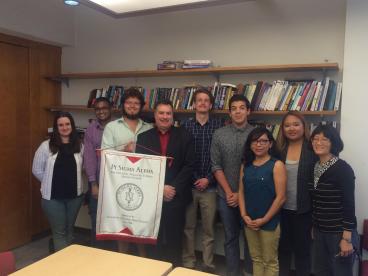
For over half a century, the Department of Political Science at UC Santa Barbara has been home to top scholars engaged in cutting edge research. Housed in a world-class university widely known for its inter-disciplinarity, the department is committed to rigorous quantitative and qualitative research, as well as to normative theory.
The department also prides itself on first-rate teaching at the undergraduate and graduate levels. Our research and teaching cover the traditional fields of international relations, comparative politics, American politics, political theory, and research methods. In collaboration with faculty in other departments and research centers on campus, we also emphasize two cross-cutting areas: politics of identity and politics of the environment.
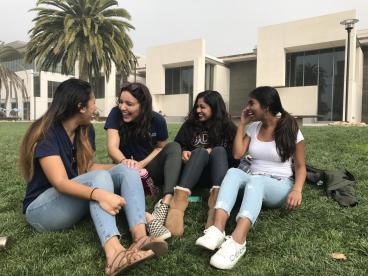
The Sociology Department is a leader in the study of institutional structures and social interaction processes, and a center for research on public policy and social change. It is recognized for its diversity of perspective, support for emerging areas of study, and innovative approaches to the discipline.
Consisting of 30 faculty, 95 graduate students, and 1,000 undergraduate sociology majors, the Department seeks to be a center of rigorous, sophisticated, and inspired searches for knowledge of social life.
Faculty members are among the best in the nation in the areas of economy and society, ethnomethodology and conversational analysis, feminist studies, global studies, race and ethnicity, sociology of culture, social movements, organizations, stratification, political sociology, urban sociology, law and social control, religion and society, population and environment, networks, quantitative and qualitative methods, and sociological theory.






